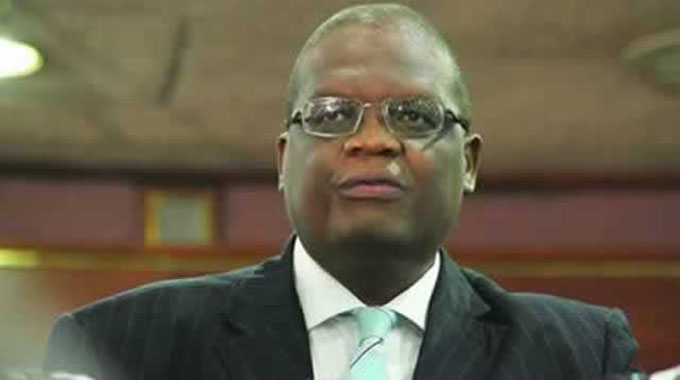‘Finance sector needs urgent hygiene’

Zimbabwe has been experiencing cash shortages since 2016, which forced the banking public to buy cash from unscrupulous mobile money agents countrywide. The cash crunch also led to a multi-tier pricing system, which although outlawed by the Reserve Bank of Zimbabwe (RBZ), has remained prevalent in the market.
With no immediate solution to the cash shortages, Government pushed for the use of plastic money, which has also came with its own challenges, including the advent of trade of the local currency at a premium as high as 45 percent.
Our Business Reporter Enacy Mapakame (EM) had a conversation with National Business Council of Zimbabwe (NBCZ) president Mr Langton Mabhanga (LM) on his views on the cash challenges.
EM: What is your general overview of the obtaining cash situation in the country?
LM: The high demand for cash is being exacerbated by the prevalence of the forex black market that demands strictly cash, which in turn has been caused by high imports of cheaper basic commodities from neighbouring countries by households and community savings clubs of both the working class and informal sector.
The consumers just cannot keep up with the rate of the price increases.
EM: What do you think of the amount circulating versus what is required? It is understood too much money in circulation can become inflationary. How best can monetary authorities strike a balance here?
LM: The high influx of uncontrolled cheap imports sold strictly for cash is not only mopping up most of the foreign currency, but is also fomenting and feeding the black market exchange rate.
EM: And what is the impact of such a situation to the economy?
LM: As long as these are not controlled, the demand for cash will be bottomless.Most of the cash — local and USD — is ending up in the hands of the unbanked foreigners or at the border posts.
Inasmuch as we may exhort locals to use plastic money without tackling the high influx of foreigners into the country who also are rushing into the retail high cash activities, the locals will remain marginalised and impoverished.
Zimbabweans are renowned for their hospitality and warmth, and let’s ensure that we grant passage to foreigners who come to add value and not compete with or rather elbow out locals from their income-generating small businesses.
No Zimbabweans would be allowed to do the same in most of these overseas nations.
EM: It is understood cash in circulation should constitute about 15 percent of total bank deposits, but in Zimbabwe only $600 million is circulating, which is about 4 percent. How sustainable is this current ratio?
LM: This trend is just indicative of a scoured environment characterised by unbridled liberalism and a need for paradigm shift to the significance we place on cash.
Our retail chains such as Pick n Pay and OK can run their own brand-specific card system.
Furthermore, our economy is needing to make precise decisions on the actual role of foreigners in our economy.
I don’t believe that foreigners who are coming into the country to elbow locals in the simplest of trading areas that our youths and women can do should be allowed.
The real freedom and independence of the youths and millennials lies in our ability to open the economy to our people, innovative and entrepreneurial young people to try out and explore opportunities.
I am sure the Second Republic under President Mnangagwa will be unpacking sustainable and viable empowerment models for young Zimbabweans.
So the authorities who are issuing these immigration permits, local authorities and organisations like EMA issuing operating permits and licences to foreigners is tantamount to marginalisation of our own people.
The financial institutions in Zimbabwe have posted hefty half-year profits in the midst of an extremely poor working class and informal sector.
It boggles the mind. The economy can’t plummet in just that sector. The RBZ cannot fold hands to such unbridled liberalism that is devouring Zimbabweans.
The financial sector needs urgent hygiene and needs to be examined for not haemorrhaging the economy. How much of these profits are going into venture capital, funding start-ups, scale-up and supporting production? Are we not at a juncture we need to engage and agree on quota commitments?
Economies worldwide are built with full support and participation of their financial institutions. Government cannot fund everything. The Zimbabwean system is skewed and overwhelming to Government. Banks must play fair and operate as full citizens of this economy that is very well flourishing them.
EM: What is the main missing link and what needs to be done to correct the cash situation?
LM: A national resolve to abstain from speculative and price skimming tendencies with banks providing incentives for banking money and the proliferation of plastic money in all formations possible.
Retail chains can run own exclusive debit cards. Make the use of debit cards and mobile money transfer platforms very affordable. The current charges are prohibitive.
Make mobile phone data affordable to encourage more online trading and payment transactions.
These services must be availed to rural villages too. There is very little education and awareness programmes that RBZ and banks have meaningfully done in the rural areas.
The economy is not in Harare and urban alone. We need a much more inclusive approach.











Comments